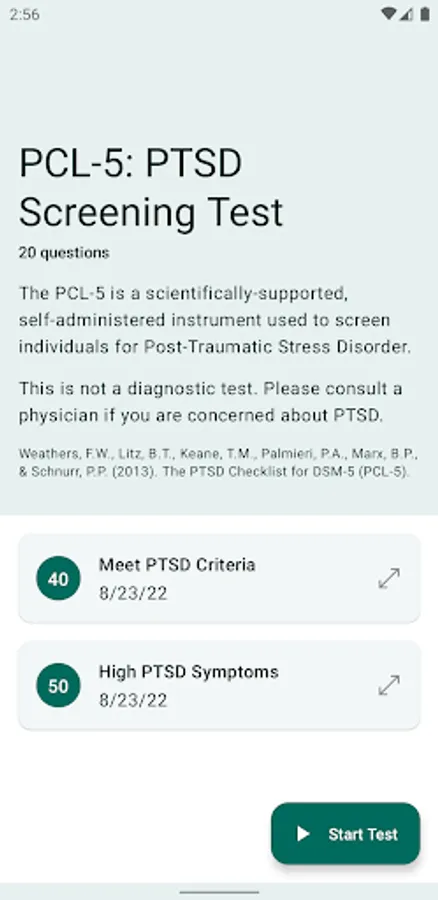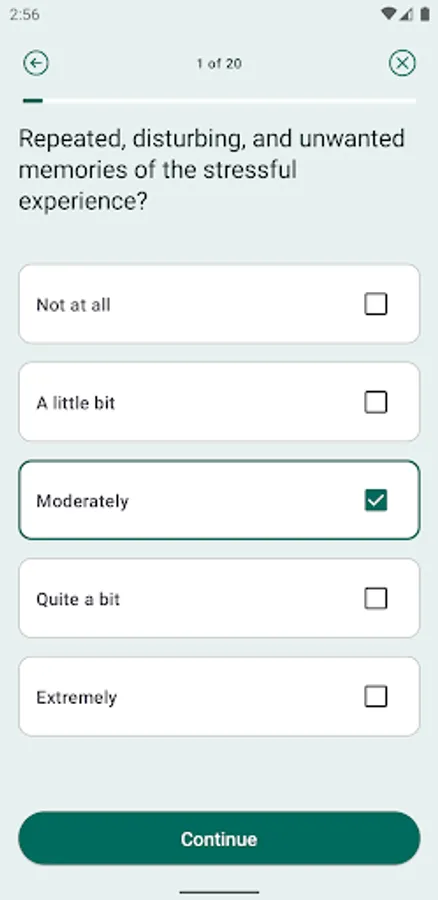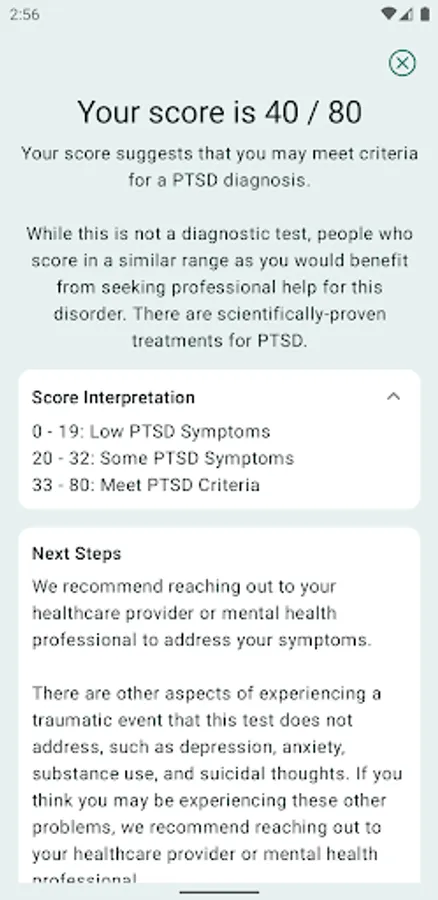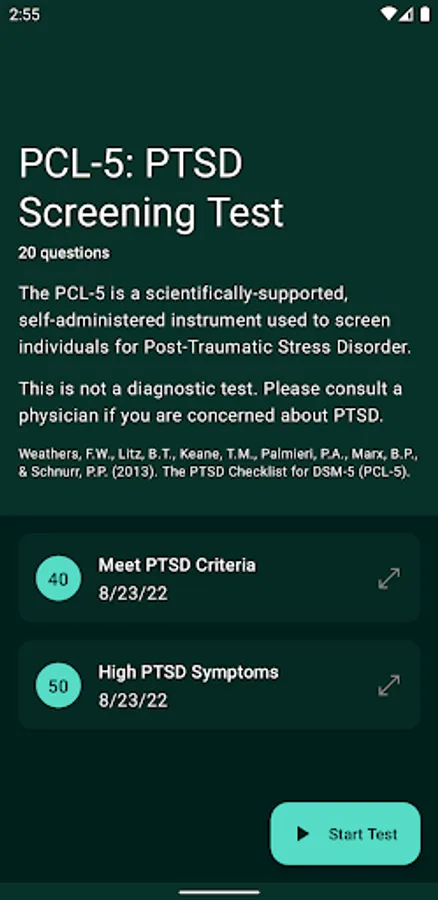In this PTSD test app, you can complete a scientifically-supported screening questionnaire to evaluate PTSD symptoms and track your scores over time. Includes a symptom assessment, history tracking, educational resources, and reminder notifications.
AppRecs review analysis
AppRecs rating 4.4. Trustworthiness 0 out of 100. Review manipulation risk 0 out of 100. Based on a review sample analyzed.
★★★★☆
4.4
AppRecs Rating
Ratings breakdown
5 star
66%
4 star
20%
3 star
10%
2 star
1%
1 star
4%
What to know
✓
High user satisfaction
85% of sampled ratings are 4+ stars (4.4★ average)
✓
Authentic reviews
Natural distribution, no red flags
About PTSD Test
It's natural to feel afraid during and after a shocking, scary, or life-threatening event. Most people who experience traumatic events may have difficulty adjusting at first but eventually get back to their normal routines. If you continue to feel distressed long after the traumatic event has occurred, you may have PTSD.
This app is designed to evaluate your symptoms of PTSD with a scientifically-supported 20-question screening test. It uses the PTSD Checklist for DSM-5 (PCL-5), a screening questionnaire for PTSD that is often used in healthcare and research settings. The PCL-5 is also helpful for monitoring your PTSD-related symptoms during and after treatment.
PTSD Test contains four tools:
- Start Test: take the PCL-5 to assess your PTSD symptoms
- History: see a history of your test scores to monitor your symptoms over time
- Information: learn about PTSD and discover additional resources that can help you on your path to recovery
- Reminder: set up notifications to re-take the test at your convenience
Disclaimer: The PCL-5 is NOT a diagnostic test. A diagnosis can only be provided by a qualified healthcare professional. Please consult a physician or mental health professional if you are concerned about PTSD.
Reference: Weathers, F.W., Litz, B.T., Keane, T.M., Palmieri, P.A., Marx, B.P., & Schnurr, P.P. (2013). The PTSD Checklist for DSM-5 (PCL-5). Scale available from the National Center for PTSD at www.ptsd.va.gov.
This app is designed to evaluate your symptoms of PTSD with a scientifically-supported 20-question screening test. It uses the PTSD Checklist for DSM-5 (PCL-5), a screening questionnaire for PTSD that is often used in healthcare and research settings. The PCL-5 is also helpful for monitoring your PTSD-related symptoms during and after treatment.
PTSD Test contains four tools:
- Start Test: take the PCL-5 to assess your PTSD symptoms
- History: see a history of your test scores to monitor your symptoms over time
- Information: learn about PTSD and discover additional resources that can help you on your path to recovery
- Reminder: set up notifications to re-take the test at your convenience
Disclaimer: The PCL-5 is NOT a diagnostic test. A diagnosis can only be provided by a qualified healthcare professional. Please consult a physician or mental health professional if you are concerned about PTSD.
Reference: Weathers, F.W., Litz, B.T., Keane, T.M., Palmieri, P.A., Marx, B.P., & Schnurr, P.P. (2013). The PTSD Checklist for DSM-5 (PCL-5). Scale available from the National Center for PTSD at www.ptsd.va.gov.



